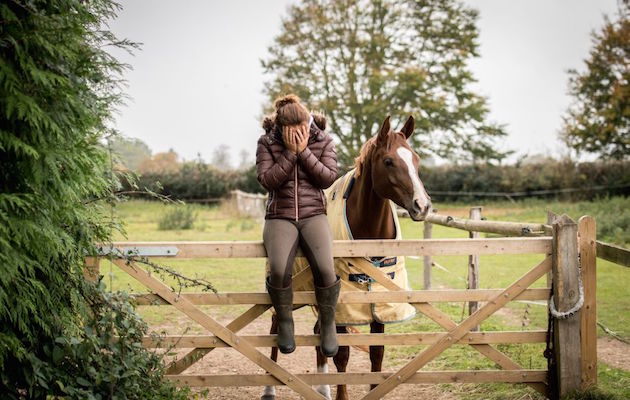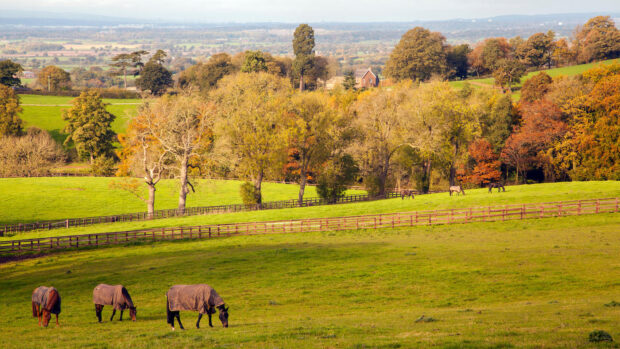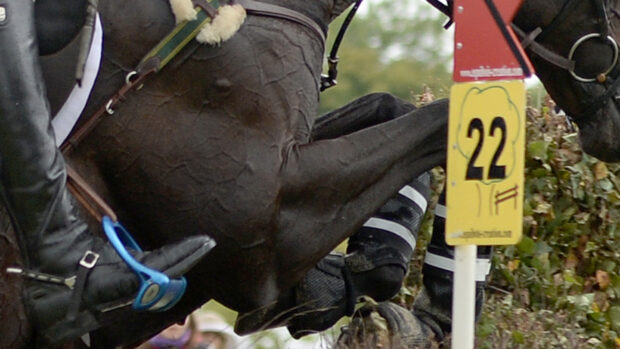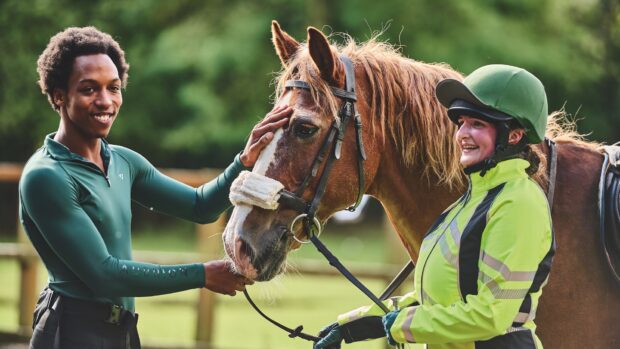The equestrian world has been encouraged to continue to speak up about negative behaviour in the industry during national anti-bullying week (15–19 November).
The theme of this year’s week is “One Kind Word”, with the Anti-Bullying Alliance – which is spearheading the campaign – stating that “kindness is more important today than it ever has been”.
“The isolation of the last year has underlined how little acts of consideration and charity can break down barriers and brighten the lives of the people around us,” said an Anti-Bullying Alliance spokesman.
Event rider Jake Tarrant, who launched the “Good Sport Initiative” in 2019 which aimed to promote positivity in the equestrian community using the hashtag #buddydontbully, said the lockdowns highlighted that bullying is “still rife” in the horse world.
“Riders were being judged for what they were or weren’t doing during lockdown. There was an awful lot of belittling and heckling going on and it’s proved that bullying is still a very valid concern,” he said. “A wrong word at the wrong time can ruin someone, but a kind word at the right time when you need it can be enough to put you back on the right track and give you hope.
“We need more people who are prepared to lift others up, and I think we need the governing bodies to be stepping in, with repercussions such as temporary bans if bullying is seen at shows. It’s so important people are encouraged to speak out and know they’re not on their own.”
Riders Minds offers an online resource dedicated to supporting the mental health of equestrians, including those who are being affected by bullying.
“It’s a tricky and uncomfortable topic but it’s one that needs addressing because it has a huge impact on people,” a Riders Minds spokesman told H&H.
“The horse world can be very emotive because people are so invested in their horses and the sport. Bullying can stem from a range of emotions; sometimes from insecurities or jealousy, but other times it’s not necessarily out of spite or malice – people sometimes don’t think how their words might affect somebody. But if that somebody is already having a bad day, one more thing can be enough to trigger that person towards a place they don’t want to be in.”
British Equestrian member bodies have safeguarding policies on their websites including details of who to report bullying to, and chief executive Jim Eyre told H&H the federation feels “very strongly” that bullying should not be tolerated.
“No one should hesitate to report a concern, either as a victim or witness, using the channels in place,” he said.
“We work with our member bodies to ensure everyone in equestrian sport is safeguarded from bullying, harassment and abuse and has an enjoyable experience. We will be supporting anti-bullying week and encourage everyone in the equestrian community to do so too.”
The British Horseracing Authority (BHA) said it is working with industry participants to develop a code of conduct that will be designed to endorse the “many positive” behaviours in the sport.
“It will also be designed to deter any negative behaviours that may arise, ensuring anyone who witnesses or is on the receiving end of poor conduct, feels confident and comfortable in calling it out,” said a BHA spokesman, adding that concerns about behaviour can be raised via representative bodies, the BHA or the confidential RaceWISE reporting service.
“Any complaints raised through these routes can be made in the knowledge that they will be taken seriously and that appropriate action will be taken.”
Employers are encouraged to have a “zero tolerance” policy against bullying in yards, with documented disciplinary action if required.
“There is no excuse for bullying in the industry and we all have a duty of care to eradicate it. Bullying has a direct correlation to mental health and wellbeing issues, and employers have a moral responsibility to provide a safe working environment,” a spokesman for the Equestrian Employers Association (EEA) told H&H.
“Employers must lead by example and can get support on safeguarding policies and best practices from the EEA.”
You might also be interested in:

‘That’s the horse world for you’: calls to end acceptance of bullying

Calls for action to help stamp out bullying *H&H Plus*
As national anti-bullying week comes to a close, more needs to be done to combat the problem across the equestrian

Subscribe to Horse & Hound magazine today – and enjoy unlimited website access all year round
Horse & Hound magazine, out every Thursday, is packed with all the latest news and reports, as well as interviews, specials, nostalgia, vet and training advice. Find how you can enjoy the magazine delivered to your door every week, plus options to upgrade your subscription to access our online service that brings you breaking news and reports as well as other benefits.



